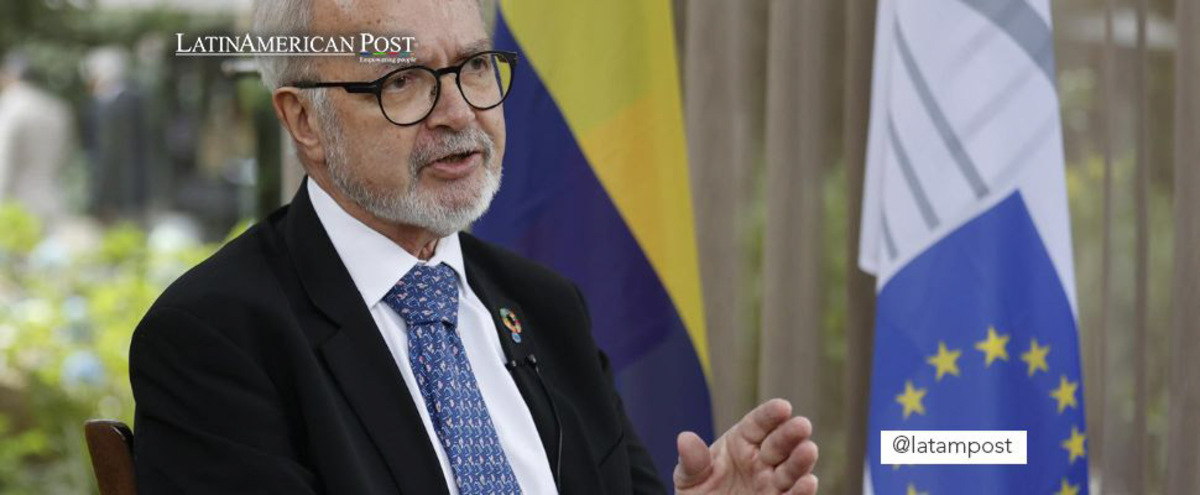Interview with EIB: Latin America Has Open Doors for Environmental Investment
In an interview with EFE, the president of the European Investment Bank (EIB), Werner Hoyer, affirms that he sees "open doors" in Latin America to promote businesses and projects against climate change and thus bring environmental and sustainable investment .

Photo: EFE/ Mauricio Dueñas Castañeda
Irene Escudero | EFE
Listen to this article
Leer en español: Entrevista al BEI: Latinoamérica tiene puertas abiertas para la inversión medioambiental
The president of the European Investment Bank (EIB), Werner Hoyer, sees "open doors" in Latin America to promote businesses and projects against climate change, since many of the governments are currently aligned with their two great strategic pillars: climate and the development.
When Hoyer took up his position twelve years ago at the largest multilateral development bank "he would never have dreamed that there would be as much awareness about climate change as there is now" and that is why a field of "business possibilities" is currently opening up for him.
"Now we see doors open everywhere but in Colombia in particular," Hoyer said in an interview with EFE, who is visiting the Andean country, the EIB's regional headquarters, to participate in the Common Finance Summit (FiCS), which ends today in Cartagena de Indias.
But not only in Colombia, where the government of Gustavo Petro wants to make a firm commitment to the environment and leave fossil fuels behind, but also on the other side of the border: "a few years ago we were so sad about the development in Brazil and now there is a new beginning that gives me optimism".
And to put these policies into practice, the EIB wants to be a fundamental partner, since "financing is, of course, a big part of it", although it is aware that "to finance these challenges you not only need to have in the same boat to governments, but to the people and also to private businesses".
Finance the climate
"To put it simply: mastering the challenges of climate change requires an enormous amount of capital. All public budgets together will never be enough to finance all needs," Hoyer alludes.
For this reason, it is necessary to "mobilize private initiative" and "entrepreneurial spirit" and also for this reason "a bank is needed that does not have the ambition to redistribute public money, but to use that public money, whatever is available, to obtain more private funds", says the German politician confidently.
Last year the EIB signed financing agreements for 65,150 million euros worldwide, of which 1,690 million went to Latin America and the Caribbean.
However, Hoyer is "very dissatisfied" with what has been achieved so far at the global level: "We have big goals, the Paris climate goals, the Sustainable Development Goals (SDGs) and we are still a long way from achieving these goals," the Mint.
But that does not mean that you have to lower your hands, but rather concentrate your efforts on drawing up "business cases" . "It has to be interesting for the private sector to invest in these matters and the private sector, in my opinion, understands it better than some political sectors," he alludes.
Fear of a setback
However, the EIB, which wants to become the European Climate Bank, knows that there is a great window of opportunity in the willingness of some countries to bet on clean energy and leave fossil fuels behind.
"What we are doing in this country (Colombia), in the region, fits perfectly with the strategic direction of the EU bank; we are expected to be the EU climate bank, so climate and sustainability are our two big pillars," he says.
The EIB does not cease to be a bank, which lends money to develop "big projects" but expects the money to be returned: "so the project must work and be productive", warns the manager.
But the push now is essential, since a new change of scenery in the governments of some countries could complicate the commitment to climate policies and investments in clean energy.
"I am very concerned with this possibility and so I think we need to be active promoters and advocates for climate action, and I think we can convince politicians ," Hoyer said.





